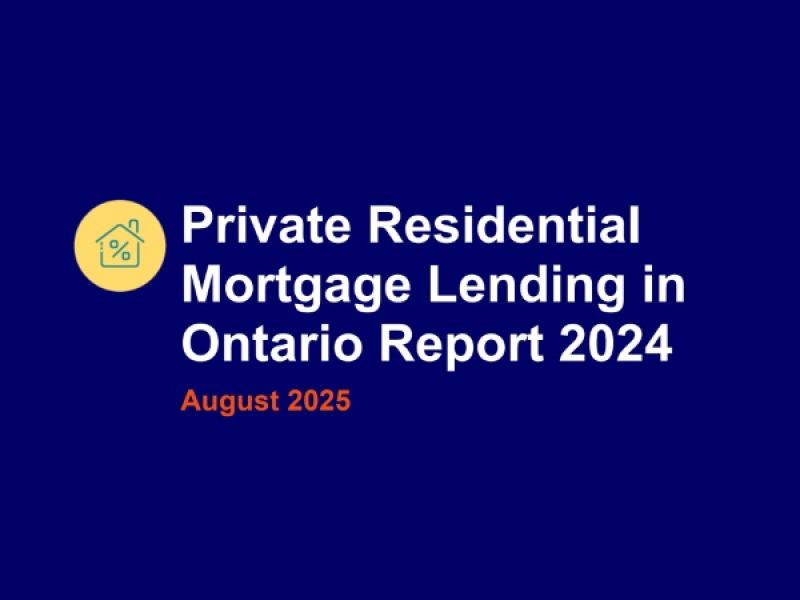
Traditional lenders saw a minor increase in mortgage activity in 2024 as the number of mortgages from private lenders continues to tick downward, new data from the Financial Services Regulatory Authority of Ontario (FSRA) shows.
Cuts to the overnight interest rates from the Bank of Canada pushed the mortgage numbers up, particularly among traditional lenders, FSRA said in its Private Residential Mortgage Lending in Ontario Report 2024.
The report is the organization’s second of its kind, which it publishes to inform the public about the features and risks of private mortgage lending.
Private lenders are sometimes accessed by borrowers who do not qualify under traditional financial institutions. Demand for their services increased during the spike in interest rates during the COVID-19 pandemic. However, these mortgages tend to be riskier, and the absolute number of private mortgages has fallen from a peak of 76,000 in 2022.
The independent regulatory agency reported traditional lenders, such as banks and credit unions, saw the number of mortgages they administer inch up to 348,849 in 2024, an approximate two per cent rise from 2023. The total dollar value rose to $224.1 billion from $216.8 billion in the same period.
Conversely, private lenders such as companies and investment firms saw the number of mortgages dip almost six per cent – from 69,067 in 2023 to 65,233 in 2024. Similarly, the total dollar value decreased to $32 billion from $33.2 billion.
"Our goal is to ensure that when consumers turn to private options, both the borrowers and investors/lenders understand the risks and receive suitable recommendations from mortgage professionals that support long-term financial stability," Antoinette Leung, executive vice- president of market conduct at FSRA, said in a release accompanying the report.
Total mortgages numbered 414,082 last year, up 0.9 per cent from 2023. The figures in 2023 and 2024 represent the lowest number of total mortgages since 2015 - a reflection of the ongoing slowdown in the housing sales sector. The total number of mortgages sharply fell in 2023, tumbling from approximately 562,000 the year before.
Delinquencies in private mortgages rising
FSRA noted the mortgage delinquency rate from Ontarians using non-bank mortgage lenders has increased. Citing Statistics Canada data, it rose to 0.20 per cent in Q3 2024 from 0.14 per cent in Q3 2022.
“This increase in the mortgage delinquency rate underscores the growing financial strain on individuals who rely on non-bank lenders,” FSRA said. These people may struggle with higher interest rates, short-term financing, limited refinancing options, and a lack of an exit strategy to transition back to a traditional mortgage, it adds.
However, more private borrowers have been preparing back-up plans.
A 2024 consumer survey found vulnerable consumers are more likely to report having discussed an exit strategy, such as transitioning to a traditional mortgage, with their mortgage broker.
Three-in-five consumers who worked with brokers or agents for mortgages from non-traditional lenders said they had conversations about returning to a mortgage with a traditional lender. That is an increase from 43 per cent in 2023.










